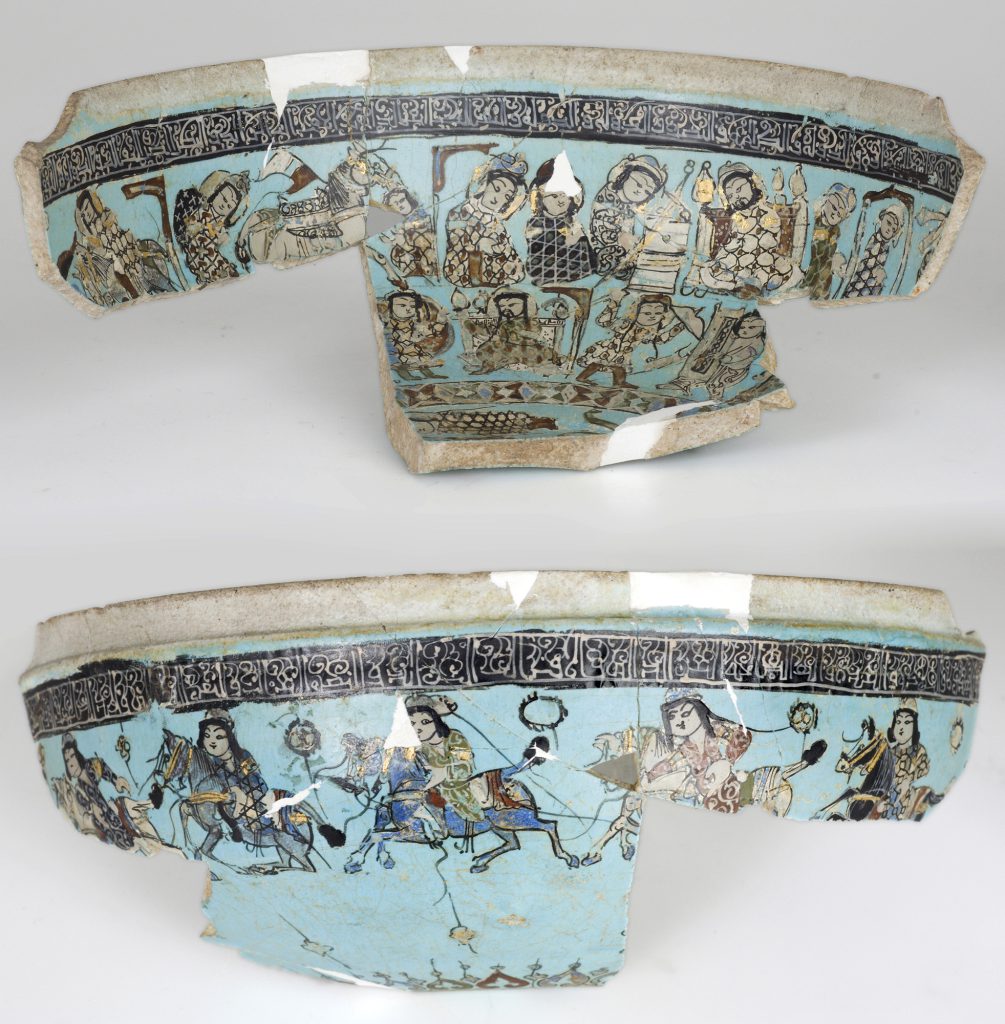



Title: Fragment of a Bowl with Scenes from the Shahnamah
Date: 12th or 13th century AD
Location: Iran
Materials: stonepaste with a turquoise glaze, painted underglaze or in-glaze with cobalt and overglaze in white, red and black enamels and some gilding (mina’i ware)
Dimensions: 7.5 x 19.5cm (maximum)
Accession Number: POT 875
Other Notes:
The fragmentary bowl is decorated with figural scenes both inside and out. Such a combination is exceedingly rare, as the decoration on the outside of mina’i-ware bowls is generally sparse and includes figures only in a very few instances. The finely-painted riders on the exterior belong to the familiar iconography of the ‘princely cycle’ and can be found on a large number of mina’i-ware objects.
The decoration of the interior, on the other hand, is exceptional. The small paintings are arranged in two concentric rows around a central medallion that is now largely lost. The figures are divided into groups separated by arches, a device that is known from near-contemporary manuscript illustration and wall painting, and the scenes must have been intended to be read as illustrations to a narrative. The identification of the story is difficult, given that so little of the bowl has survived. It is nevertheless very likely that they illustrate episodes from Firdawsi’s Shahnamah (‘Book of Kings’), from the story of Faridun and his three sons, although the images do not follow the sequence of the story.
Bibliography:
E.J. Grube et al, Cobalt and Lustre. The First Centuries of Islamic Pottery, The Nasser D Khalili Collection of Islamic Art, volume IX, London 1994, cat.228, pp.208–9.
Zoom
Close

Create your own collection of artworks that you can print or save as a PDF. Please enter you email to enable feature.
Small Flask | JLY 1075
Has been added to your collection.
TIP:
You can now access and view your collection from the main menu at any time.